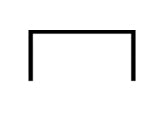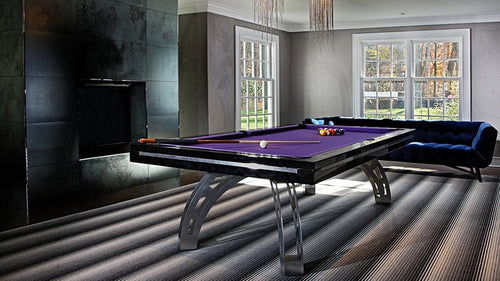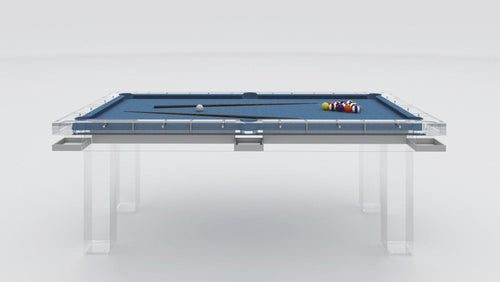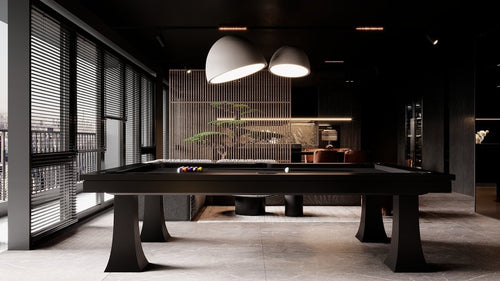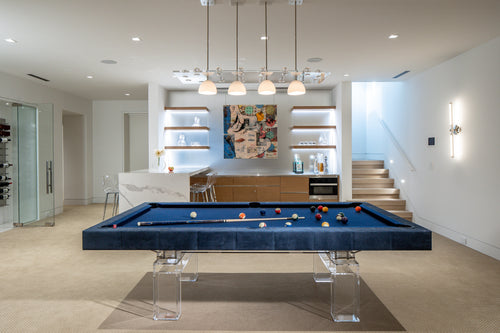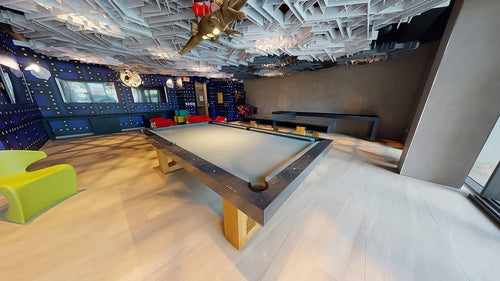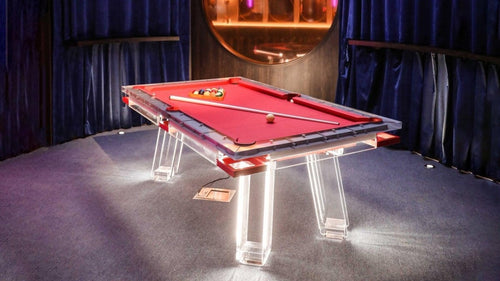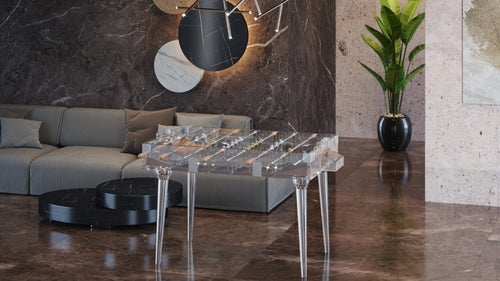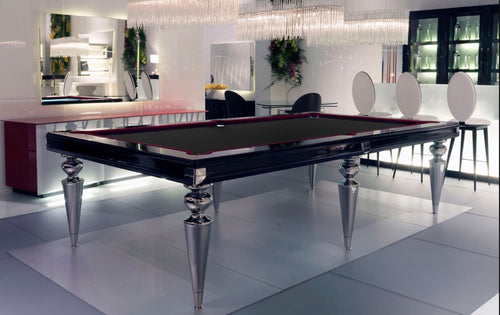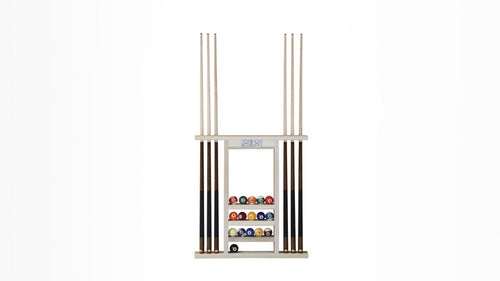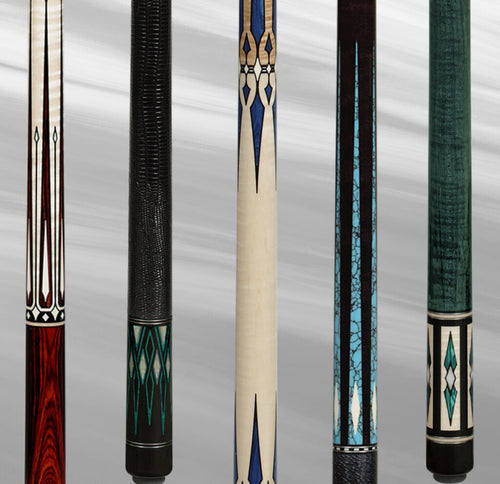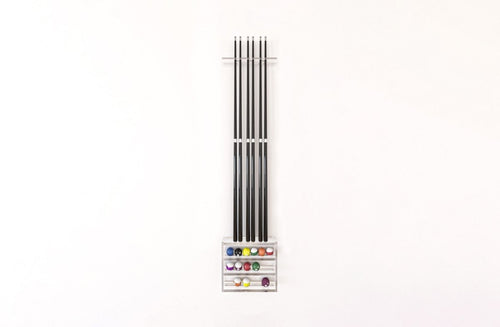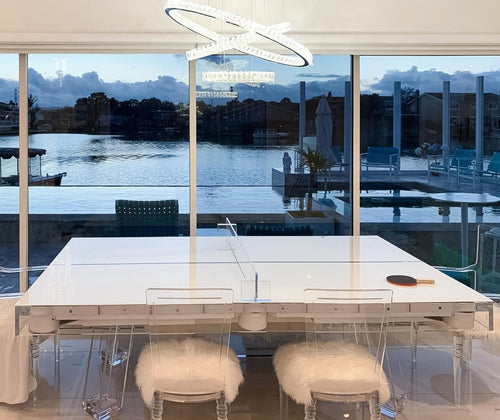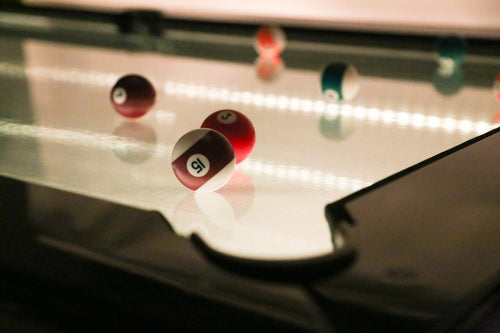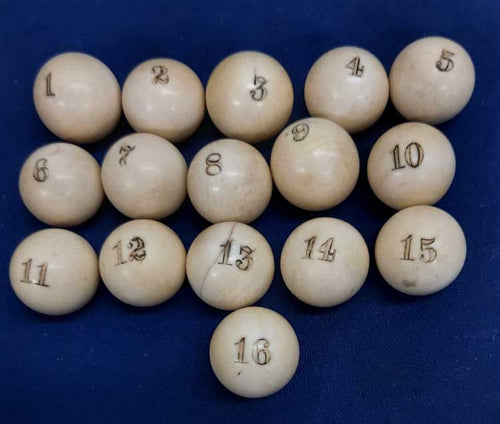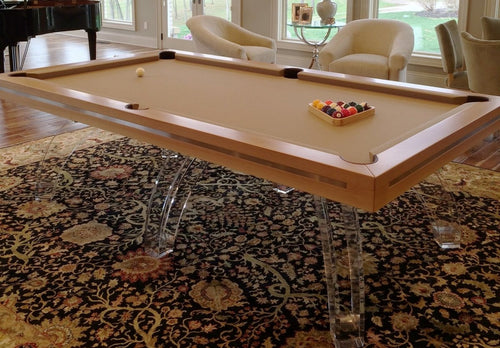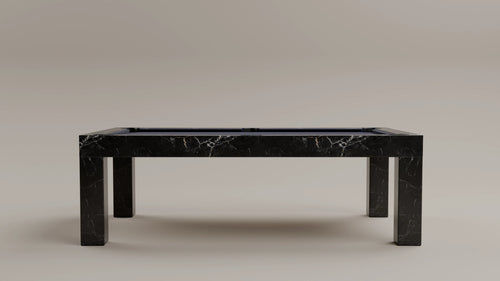Enjoy our modern designs
Estimated Read Time: 5 mins | Updated:
Planning your game room setup starts with knowing the exact regulation foosball table size. Whether you’re a casual player or an interior designer looking to build a game room, understanding standard dimensions and spacing requirements ensures you get the best experience. Below, we cover official foosball table dimensions, how much room you’ll need, and key considerations for a proper setup.
Official Regulation Foosball Table Dimensions

Professional organizations such as the International Table Soccer Federation (ITSF) and United States Table Soccer Organization (USTSO) specify regulation foosball tables to be:
- Length: 54–56 inches (approx. 137–142 cm)
- Width: 29–30 inches (approx. 74–76 cm)
- Height: 34–36 inches (approx. 86–91 cm)
These measurements are standard among top brands like Tornado, Bonzini, Garlando, Roberto Sport, Leonhart, Ullrich Sport, Rosengart, and JX Sports. If you’re aiming for official tournament play, ensure your table matches these specs.
How Much Room Do You Need?

It’s easy to look at the table’s width and forget the rods extend on both sides—plus you need space for players to stand comfortably. For a regulation table:
- Minimum Room Size: About 10 feet by 8 feet (to accommodate the extended rods and allow player movement).
- Ideal Spacing: Add 3.5 to 4 feet clearance on both sides of the width so players can pull rods back without hitting walls or each other.
If you plan on serious competition, give yourself even more room (especially for footwork and angled stances), so you can maneuver freely and not feel boxed in.
Key Features of Regulation-Size Tables

Regulation foosball tables share consistent build elements:
- Rods: Typically 8 rods total, allowing balanced offense/defense.
- Player Figures: Securely mounted to minimize wobble, around 4.5" tall.
- Playing Surface: Smooth laminate or phenolic resin for even ball roll.
- Goals: About 8.25 inches wide and 6.7 inches tall.
- ITSF-Approved Balls: Around 34.5–35 mm in diameter.
Additional Space Considerations
Smaller foosball variations exist—like children’s tables and tabletop models—but a full-size regulation table needs more clearance. Think about:
- Rod Extension: Make sure rods can extend fully on both sides without hitting walls or furniture.
- Ball Returns: Side returns let you push the table closer to the wall. End returns require extra space at each end to reach around the table.
- Player Stance: Skilled players often lean back or angle themselves, so factor in that extra room behind them.
Build Materials and Durability

- MDF: Affordable and smooth surface for casual play.
- Phenolic Resin: High-end, superior bounce and wear resistance.
- Stainless Steel Rods: Best for durability, resisting bending over time.
- Quality Plastics: Common for player figures, balancing cost and resilience.
- Custom Bases/Finishes: For a statement piece, consider metal, glass, or exotic wood veneers to elevate the table’s look.
Maintaining a Regulation Foosball Table
Regular upkeep keeps gameplay smooth:
- Cleaning: Wipe down the playing surface; remove dust and debris before each session.
- Rod Lubrication: Use foosball-specific lubricants to avoid unnecessary wear.
- Surface Integrity: Keep liquids away; spills damage both wood and resin finishes.
- Check Components: Inspect rods, players, and corners for damage; replace parts as needed.
Customizing Your Table

You can personalize your regulation foosball table without breaking official rules:
- Handles: Swap out for better grip or different grip sizes.
- Player Colors/Designs: Change figure appearance while keeping standard dimensions.
- Lighting and Scorekeepers: LED systems or digital score trackers can be added without altering gameplay.
- Rod Upgrades: Higher-grade steel rods or bearings for smoother performance, as long as they stay ITSF-compliant in length.
A regulation foosball table size ensures fair play and a consistent experience whether you’re in a friendly match or high-level tournament. Factor in rod extensions, player stance, and ball returns when measuring your space. Ready to choose or customize your table? Explore our Luxury Options to find a perfect fit for your decor and play style.
For any questions, email us at sales@pooltableportfolio.com or call 888.617.7665.
Ready to Elevate Your Game Room?
Discover our exclusive collection of regulation foosball tables crafted for performance and style.
Explore Now
